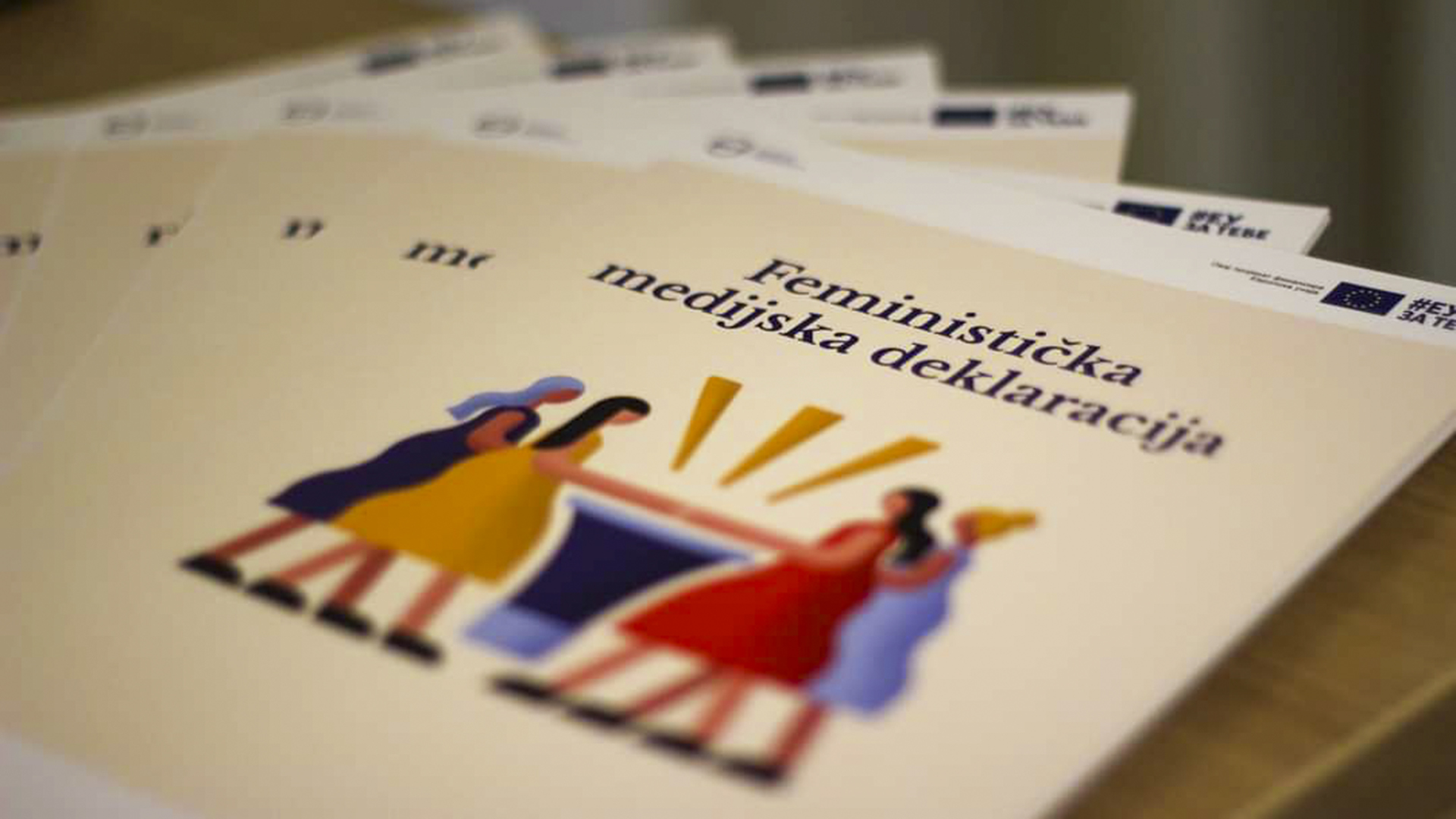
BeFem's Feminist Media Declaration
A call for a common struggle against the patriarchy in the media.
Research shows that women still make very rare media appearances as expert speakers.
The Feminist Media Declaration is based on a number of core principles, above all "equality, responsibility and solidarity."
Feminist education is indispensable in the future.

Jovana Netkovic
Jovana Netković is a comunicologist and activist from Belgrade. As a journalist and memmber of feminist cultural center BeFem, she has dealt with women’s rights and the status of women in the media. She researches the status of different marginalized groups and jointly with her fellow activists makes short documentaries about local women who are role models in their neighborhoods.
This story was originally written in Serbian.